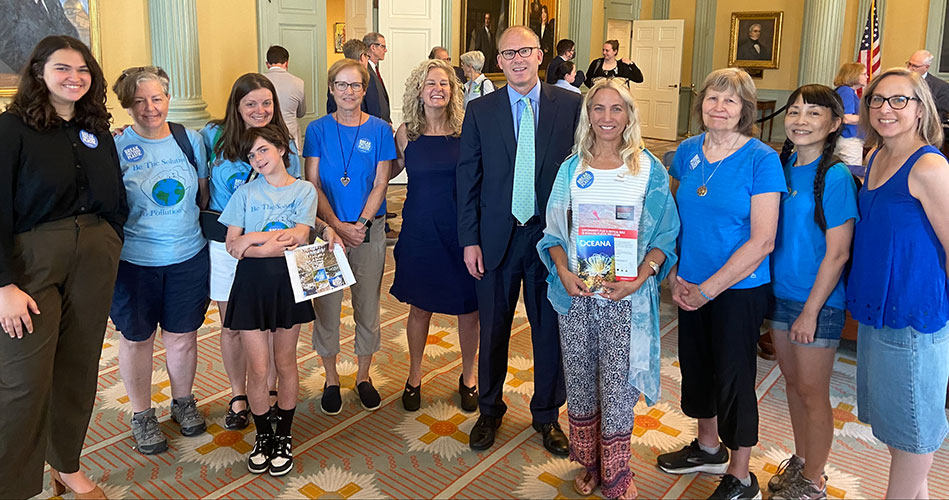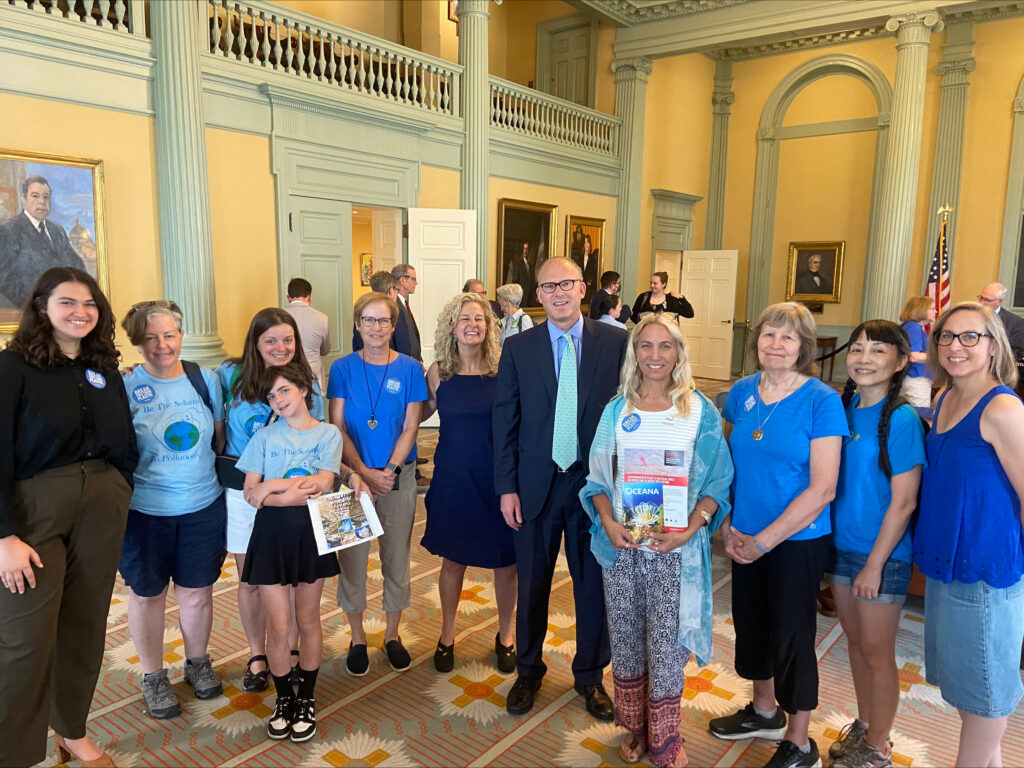BOSTON — State Senator Jason Lewis joined his colleagues in the state Senate to pass the Massachusetts Plastics Reduction Act, comprehensive legislation to reduce and eliminate single-use plastics that threaten our environment and human health. The bill passed with a bipartisan vote of 38-2.
Senator Lewis, along with Representative Michelle Ciccolo, co-founded and co-chairs the Zero Waste Caucus in the state legislature. This group of state lawmakers works together to reduce and eliminate waste through legislative action, education, state and local collaboration and public outreach. Addressing the single-use plastics crisis is one of the Caucus’s top priorities.
“The Massachusetts Plastics Reduction Act is the most far-reaching legislation ever passed in the state legislature to tackle the scourge of single-use plastics,” said State Senator Jason Lewis, who serves as Co-chair of the Zero Waste Caucus. “I’m very grateful to the Plastic Free Mass coalition and the many constituents who have advocated for Massachusetts to prioritize this issue and become a national leader in reducing and eliminating single-use plastics from our communities.”
“It’s time Massachusetts made a bigger commitment to tackle the plastic pollution crisis in our state,” said Nancy Downes, Oceana Field Campaigns Manager. “We applaud the Massachusetts Senate for passing S. 2830 which would protect our environment and coast by banning single-use plastic bags and reducing other single-use plastics across the state. Statewide polling by Oceana reveals that nearly 9 in 10 voters in Massachusetts are concerned about single-use plastic and support state and local policies to reduce it. Plastics are inundating our oceans, impacting the climate and harming marine wildlife. We must stop the problem at its source by reducing the amount of single-use plastic produced and moving to reuse and refill systems. We call on the House to pass this much-needed bill.”
The production, consumption and disposal of single-use plastics cause numerous harms to our environment and human health. Municipalities are also burdened with expensive waste disposal costs. Contrary to what many consumers believe, less than 10% of post-consumer plastic waste in the United States is actually recycled. The vast majority of this waste is burned in incinerators, buried in landfills or ends up as litter in our streets and parks, eventually making its way into our oceans. The Great Pacific Garbage Patch, much of which is plastic debris, already covers an area twice the size of Texas. Microplastic particles have been found everywhere on earth and throughout the food chain including our bodies.
The Massachusetts Plastics Reduction Act takes comprehensive action to address this crisis, including: implementing a statewide prohibition on carry-out plastic bags at retail stores. As of May 2023, 162 Massachusetts cities and towns, making up nearly 70 percent of the state’s population, had already passed local ordinances to regulate single-use plastic bags; allowing plastic utensils and straws to be given to consumers only upon request; prohibiting single-use plastic bottle purchases by all state agencies, except for certain emergency situations; requiring the Department of Environmental Protection (DEP) to establish a statewide bulk plastic recycling program for products such as car seats; requiring non-flushable plastic wipes to be clearly labeled with “Do Not Flush” warnings, along with a public outreach campaign; creating the Plastics Environmental Protection Fund to provide reusable bags to low-income communities and issue grants to small businesses to assist in the reduction of plastic use; and establishing a special commission to study and make recommendations for implementing extended producer responsibility (EPR) in the Commonwealth.
During debate on the Senate floor, Senator Lewis was also successful in amending the bill to add a statewide prohibition on unrecyclable black plastic from being used for food service ware and to require DEP to report back to the legislature on the feasibility and benefits of phasing out use of polystyrene plastic products.
The Massachusetts Plastics Reduction Act now moves to the House of Representatives for further consideration.






